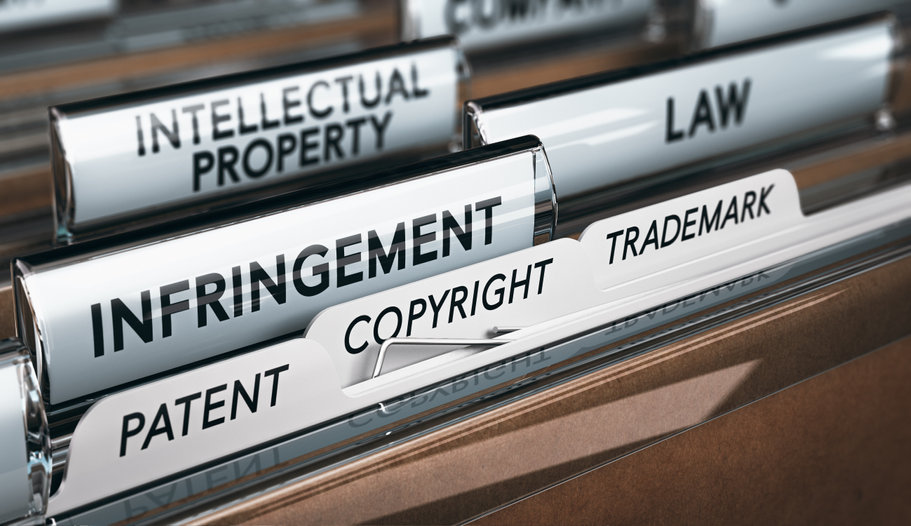Trademarks are logos, names, slogans, or other attributes that serve to identify the nature and source of goods or services. Trademarks can help businesses identify their products and services to customers, and a strong trademark can immediately signal to a consumer the origin of the goods.
The Lanham Act is the federal statute which governs trademark law in the United States. It is also known as the Trademark Act of 1946. Not only does the Lanham Act provide the general framework for registering a trademark with the United States Patent and Trademark Office (USPTO), but also provides the federal causes of action and remedies for trademark infringement cases. The primary remedies for trademark infringement under the Lanham Act include injunctive, affirmative, and monetary relief.
Injunctive & Affirmative Relief
Injunctive relief is the most common form of relief whenever monetary damages are not enough, or where the damages incurred by the plaintiff may not be calculated until later on in the case. Federal Courts may issue this injunctive relief in the form of ordering the defendant to immediately stop any continuing acts which are infringing. The court may also require the defendant to take affirmative steps to stop the infringement, such as product recalls, disclaimers, or destruction of the infringing items. This is known as an affirmative relief.
Monetary Relief
The Lanham Act provides discretion to the Federal Courts to grant monetary damages for trademark infringement. Because of this discretion, monetary damages are not mandatory, and the court has a lot of freedom when determining the amount of a monetary award. Usually, if injunctive relief is enough, monetary relief will not be given. However, if monetary damages are awarded, a plaintiff may recover based on:
- Infringer’s profits
- Plaintiff’s monetary loss (actual damages)
- Attorneys’ fees and costs (only in exceptional cases); and
- Prejudgment interest
- Accounting of Infringers Profits
Under the Lanham Act, a valid trademark owner is entitled to the accounting of profits made as a result from the infringement and is authorized to recover the profits made by the infringing use. A valid trademark holder only needs to show the defendant’s wrongful profits made from the alleged infringement and does not need to prove consumer confusion or establish the infringer’s bad faith or willfulness with respect to their wrongful profits in order to establish an accounting of profits.
- Recovering Actual Damages
Unlike the evidence required to establish entitlement to an accounting of profits, a trademark owner must indeed provide evidence of actual customer confusion which caused an actual economic loss to recover damages. This could be actual evidence of diversion of sales to the infringing user or survey results establishing actual customer confusion with the mark’s true owner. Plaintiffs often argue that a wrongful sale by the infringing defendant equates to a sale lost by the plaintiff. To demonstrate an actual loss, a trademark owner must show evidence of a loss of sales or profits, a loss of goodwill (value of the trademark), or cost of corrective advertising in situations where the infringing mark competes in the same market as the registered mark. Victims of counterfeiting may recover three times the calculated damages (treble damages) or the infringer’s profits, whichever is more.
Statutory Damages
A trademark owner may elect, before final judgment, to collect an award of statutory damages instead of compensatory for any use of a counterfeit mark in connection with the sale, offering for sale, or distribution of goods or services. Courts may even award statutory damages together with compensatory damages in counterfeit cases, as long as the award is not for the same violation.
Statutory damages for non-willful infringement range from $1,000 — $200,000 for each type of counterfeit mark sold or offered. If the infringement was committed willfully, a court may award up to $2,000,000 for each type of counterfeit good sold or offered. As you can see, actual damages do not need to be proven to collect statutory damages and Courts have wide discretion in computing the statutory damages award. Courts consider the difficulty or impossibility of proving actual damages, the circumstances of the infringement, and the efficacy of the damages as a deterrent.” When the infringement is willful, courts also consider statutory damages as a way to penalize the infringer and deter future violations.
Willful Counterfeiting
If a Plaintiff elects to collect actual damages instead of statutory damages, and they can establish that the counterfeiting of the mark was committed willfully, the court has the discretion to grant treble damages plus attorney’s fees and prejudgment interest.








